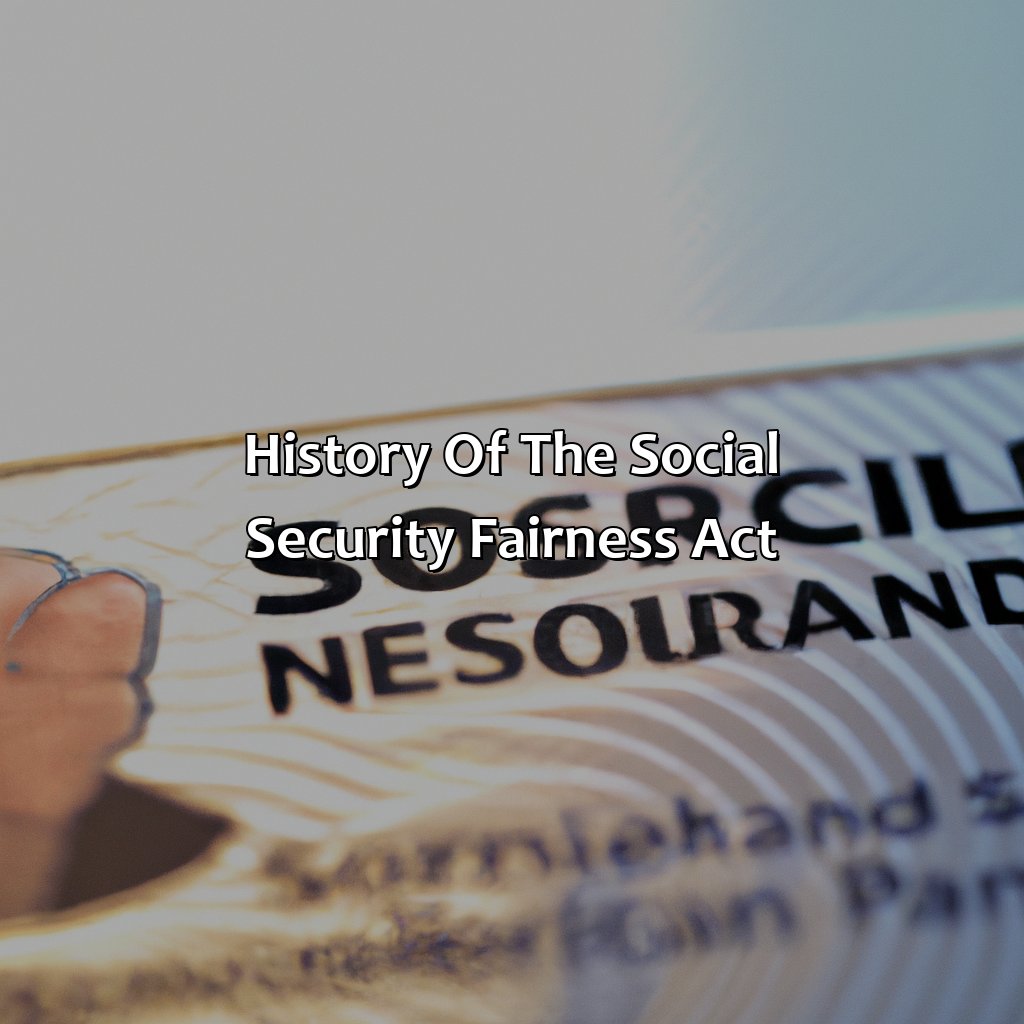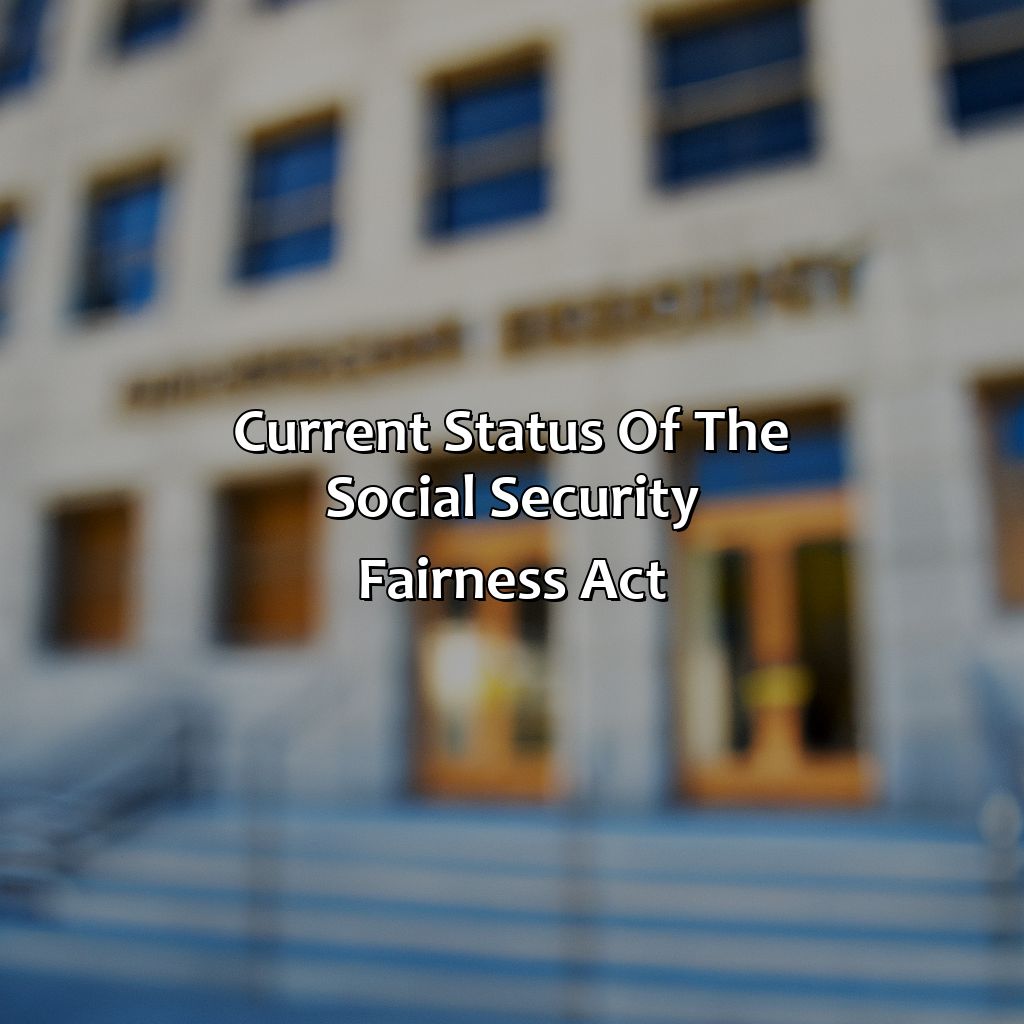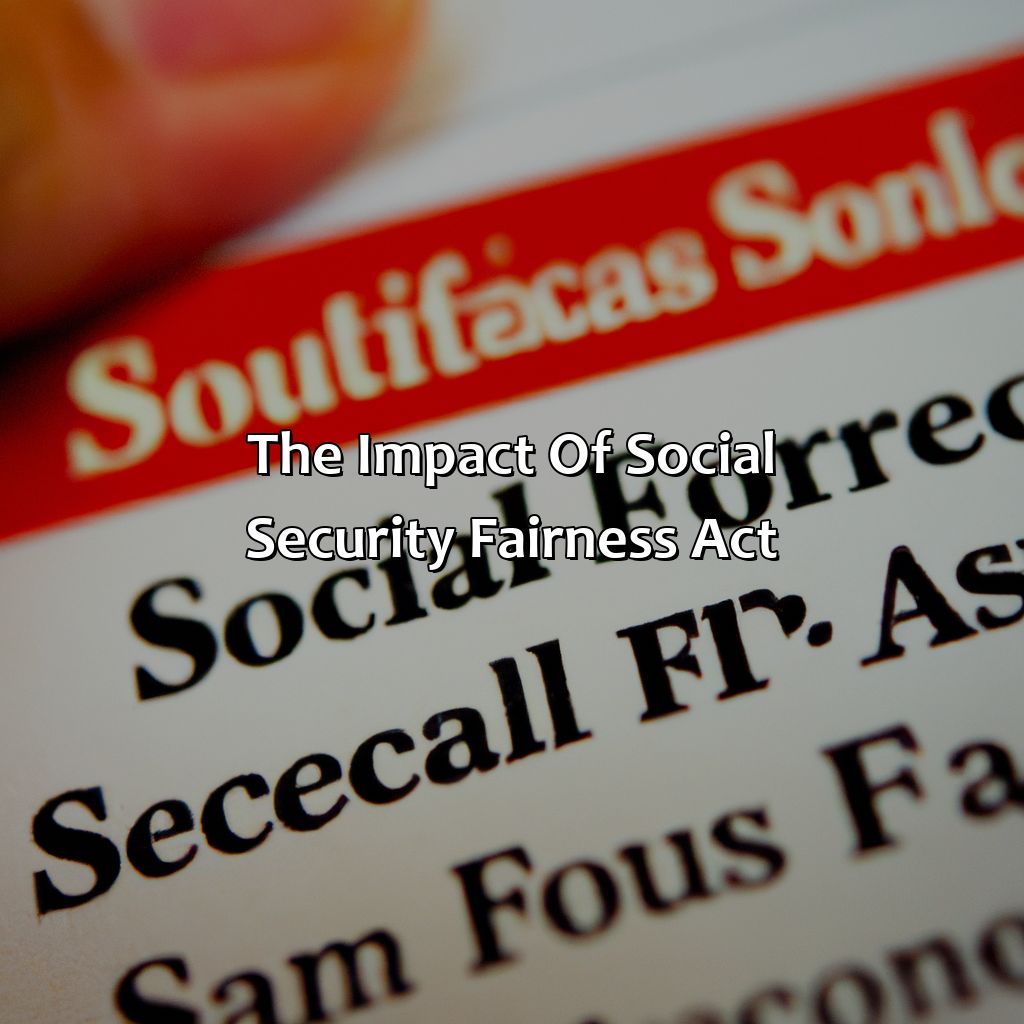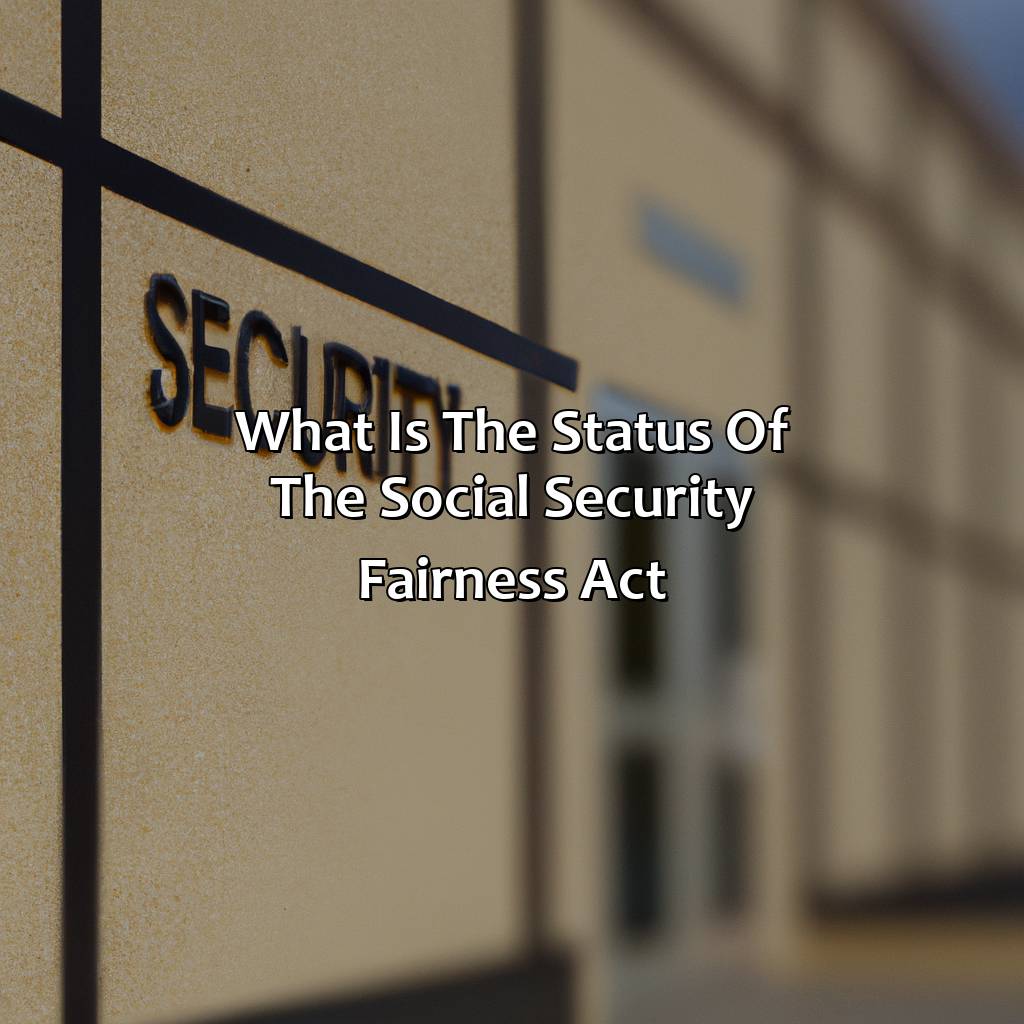What Is The Status Of The Social Security Fairness Act?
Key Takeaways:
- The Social Security Fairness Act aims to repeal the Government Pension Offset (GPO) and Windfall Elimination Provision (WEP) that reduce Social Security benefits for certain retirees, including teachers, police officers, and firefighters.
- This act has a long history of proposed legislation and bipartisan support, but it has yet to be passed into law despite numerous introductions and re-introductions in the House and Senate.
- Currently, House Bill H.R. 141 and Senate Bill S.521 are the most recent versions of the Social Security Fairness Act introduced in Congress, with significant support from both parties and various advocacy groups.
Are you concerned about the future of the Social Security Fairness Act? With recent legislative gridlock, it can be difficult to keep track of which bills have been successful and which are still pending. In this article, we will discuss the current status of the Social Security Fairness Act.
History of the Social Security Fairness Act
The origins of the Social Security Fairness Act date back to the late 1970s when the Windfall Elimination Provision and Government Pension Offset were first introduced. These regulations often impact individuals receiving pensions from non-covered employment, such as state and local government positions. Over the years, many lawmakers have proposed changes to these provisions, leading to the introduction of various versions of the Social Security Fairness Act. The most recent iteration, introduced in 2021, seeks to address concerns of affected individuals and improve their retirement benefits.
Furthermore, the proposed legislation seeks to increase awareness about the impacts of these provisions and ensure equal treatment for all retirees. Despite ongoing efforts and widespread support for reform, the Social Security Fairness Act has yet to be passed into law. However, with continued advocacy and legislative action, there is hope for its successful implementation.
One suggestion to push the progress of the act is to generate more public awareness and support for the cause. This can be achieved through social media campaigns, grassroots efforts, and educational initiatives aimed at empowering affected individuals to make their voices heard. Another strategy is to engage with policymakers and encourage them to prioritize the issue, advocating for policy changes that ensure equal treatment and fair retirement benefits for all. By raising awareness and advocating for legislative changes, those impacted can help drive progress towards a more equitable and just system.

Image credits: retiregenz.com by Adam Duncun
Current Status of the Social Security Fairness Act
Let’s go into the depths of understanding about the Social Security Fairness Act. We’ll check out the sub-sections. This will help us to comprehend the legislative process and the differences between the House and Senate versions of this Bill. H.R. 141 and S.521 are solutions proposed.

Image credits: retiregenz.com by James Jones
Sub-Heading: House Bill H.R. 141
House Bill targeting Social Security Fairness Act awaits a hearing in the house. Bill H.R. 141, aimed at ensuring equitable social security benefits for affected public servants, co-sponsored by Representative Rodney Davis, has yet to proceed past the opening chapter of legislative activity.
This legislation intends to eliminate unequal regulations faced by public employees under Social Security provisions and bring their treatment in line with other beneficiaries. However, it needs further consideration from the House Ways and Means Committee before progressing.
As of now, there are no updates or additional information regarding the House Bill H.R. 141.
According to Forbes, many citizens face uncertainty regarding pension funds due to current events like pandemics and economic downturns.
Senate Bill S.521: How politicians prepare for retirement while leaving the rest of us to rely on Social Security.
Sub-Heading: Senate Bill S.521
The Senate Bill addressing the Social Security Fairness Act is currently in a state of limbo. The bill is stuck in the Committee on Finance, where it has been since January 28th, 2021. Despite strong advocacy efforts from various groups for this act to be passed, there appears to be no movement towards passing this legislation any time soon.
It’s essential to note that S.521 targets specific groups who unfairly experience cuts to their Social Security benefits because of cumulative work histories under different retirement systems. These individuals are known as WEP & GPO retirees, and they are disproportionately affected by Social Security benefit reductions even though many paid into both the Social Security system and public retirement plans throughout their careers.
Interestingly, Congress first implemented these benefit adjustments back in 1983 with little if any pushback from lawmakers or interest groups. It wasn’t until more recently that advocates have successfully brought widespread attention to how unfair these changes have been for those affected individuals.
It’s not just a fairness act, it’s a game changer for retirees across the country.
The Impact of Social Security Fairness Act
The Social Security Fairness Act has a significant impact on the lives of people who receive Social Security benefits. It is aimed at reducing or eliminating the Windfall Elimination Provision and the Government Pension Offset. The act ensures that all individuals, regardless of their profession, receive the same benefits. The Social Security Fairness Act also aims to restore equal treatment for public employees under the Social Security system who are affected by both provisions.
The implementation of the Social Security Fairness Act will benefit millions of Americans who have dedicated their lives to serving their communities as firefighters, police officers, teachers, and other public employees. These workers often receive lower Social Security benefits because of the Windfall Elimination Provision and the Government Pension Offset, which can be particularly hurtful for those with lower incomes.
Therefore, it is essential to ensure that the Social Security Fairness Act receives due consideration in the Congress. Citizens can take action by reaching out to their elected officials to express their support for this legislation. Additionally, public employees can get involved in advocacy efforts and raise awareness about the importance of the Social Security Fairness Act. These efforts will help to ensure that everyone is treated equally under the Social Security system.

Image credits: retiregenz.com by David Washington
Five Facts About the Status of the Social Security Fairness Act:
The Social Security Fairness Act aims to repeal the Windfall Elimination Provision (WEP) and the Government Pension Offset (GPO) from Social Security benefits. (Source: National Association of Retired Federal Employees)
The WEP reduces Social Security benefits for workers who also receive a pension from a job where they did not pay Social Security taxes. (Source: AARP)
The GPO reduces Social Security spousal or survivor benefits for those who also receive a government pension. (Source: The Balance)
The Social Security Fairness Act has been introduced multiple times in Congress but has not yet been passed. (Source: Social Security Works)
Organizations advocating for the repeal of WEP and GPO include the National Active and Retired Federal Employees Association, the Social Security Fairness Coalition, and the National Committee to Preserve Social Security and Medicare. (Source: Forbes)
FAQs about What Is The Status Of The Social Security Fairness Act?
What is the Social Security Fairness Act?
The Social Security Fairness Act is a proposed legislation that aims to repeal the Government Pension Offset (GPO) and Windfall Elimination Provision (WEP) in Social Security benefits.
What is the status of the Social Security Fairness Act in Congress?
Currently, the Social Security Fairness Act is pending in the House Ways and Means Committee and the Senate Finance Committee.
What are the implications of the Social Security Fairness Act if it becomes law?
If the Social Security Fairness Act becomes law, it will affect a significant number of Americans who receive or will receive pension benefits from non-Social Security sources. This includes government workers, teachers, and firefighters, among others.
Has the Social Security Fairness Act received support from any organizations?
The Social Security Fairness Act has received support from various organizations, including the National Education Association (NEA), the American Federation of Teachers (AFT), and the National Active and Retired Federal Employees Association (NARFE).
What is the overall goal of the Social Security Fairness Act?
The overall goal of the Social Security Fairness Act is to provide fair and equal treatment to all Americans who have paid into Social Security and to eliminate the unintended consequences of GPO and WEP.
What can I do to support the Social Security Fairness Act?
Contact your Senators and Representatives to urge them to support the Social Security Fairness Act. You can also join and support organizations that advocate for the repeal of GPO and WEP, like the Association of Mature American Citizens (AMAC) and the Social Security Fairness Coalition.
 Checkout this IRS Loophole
Checkout this IRS Loophole 
